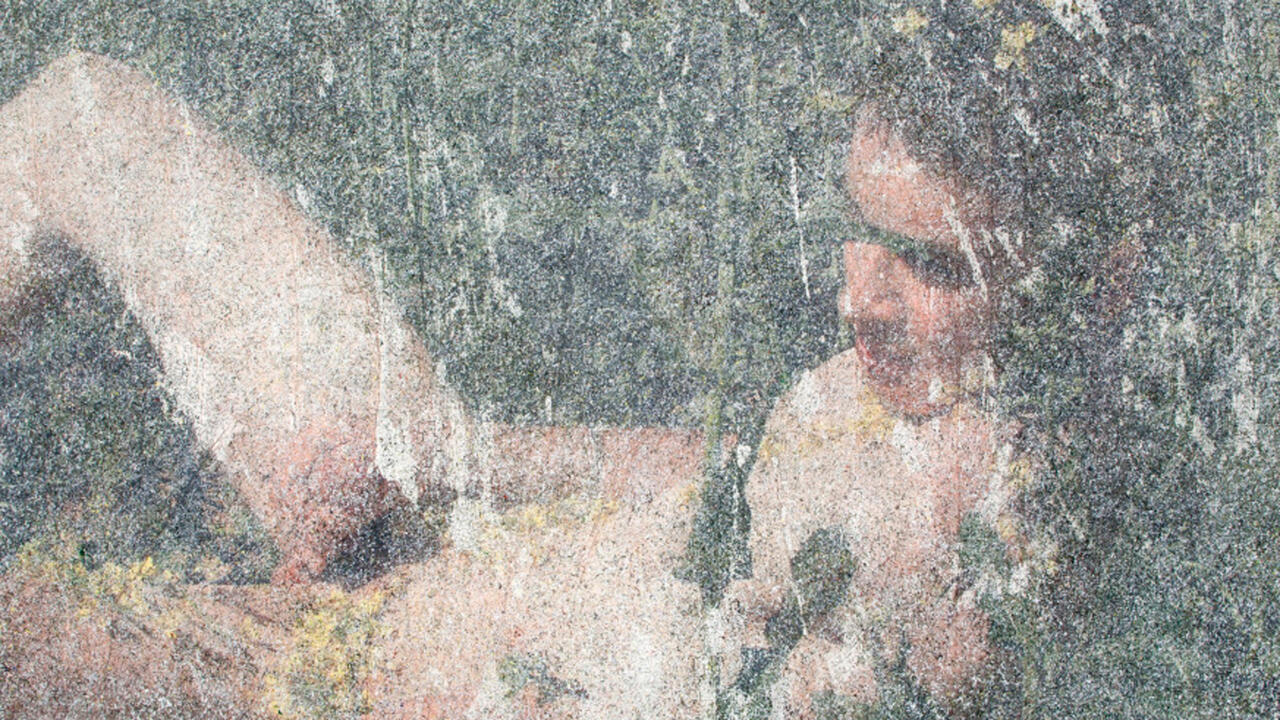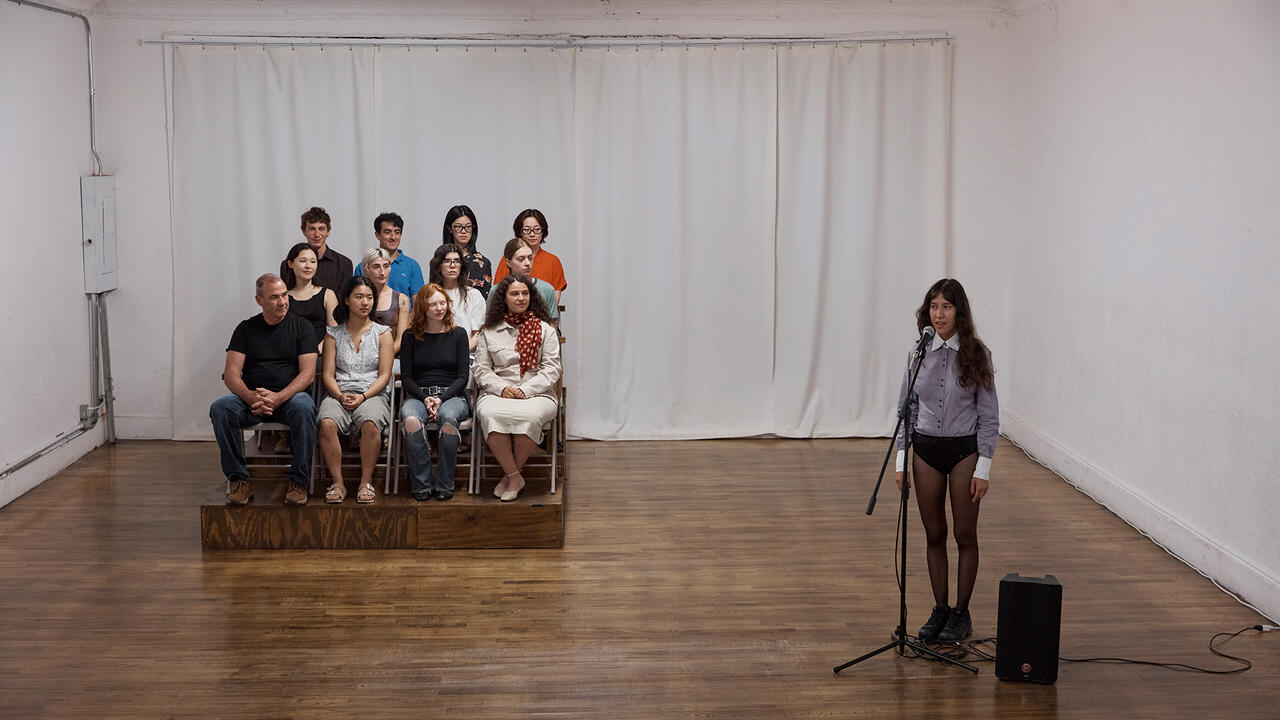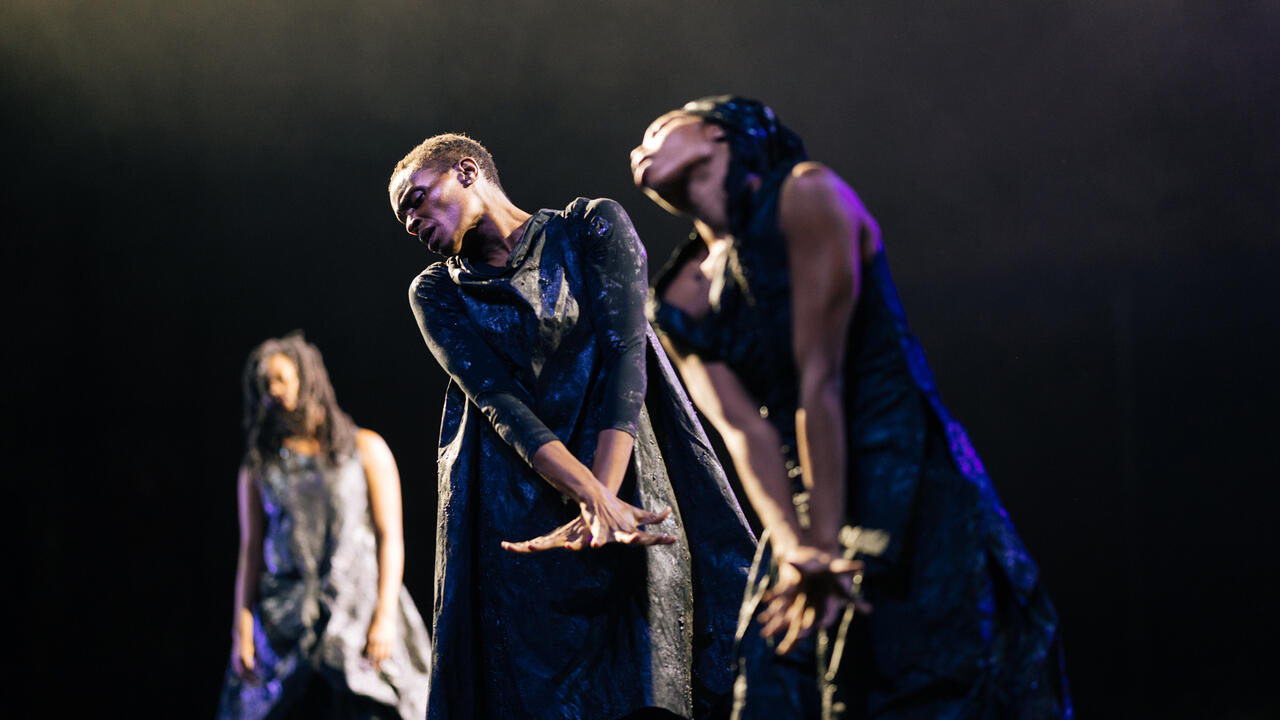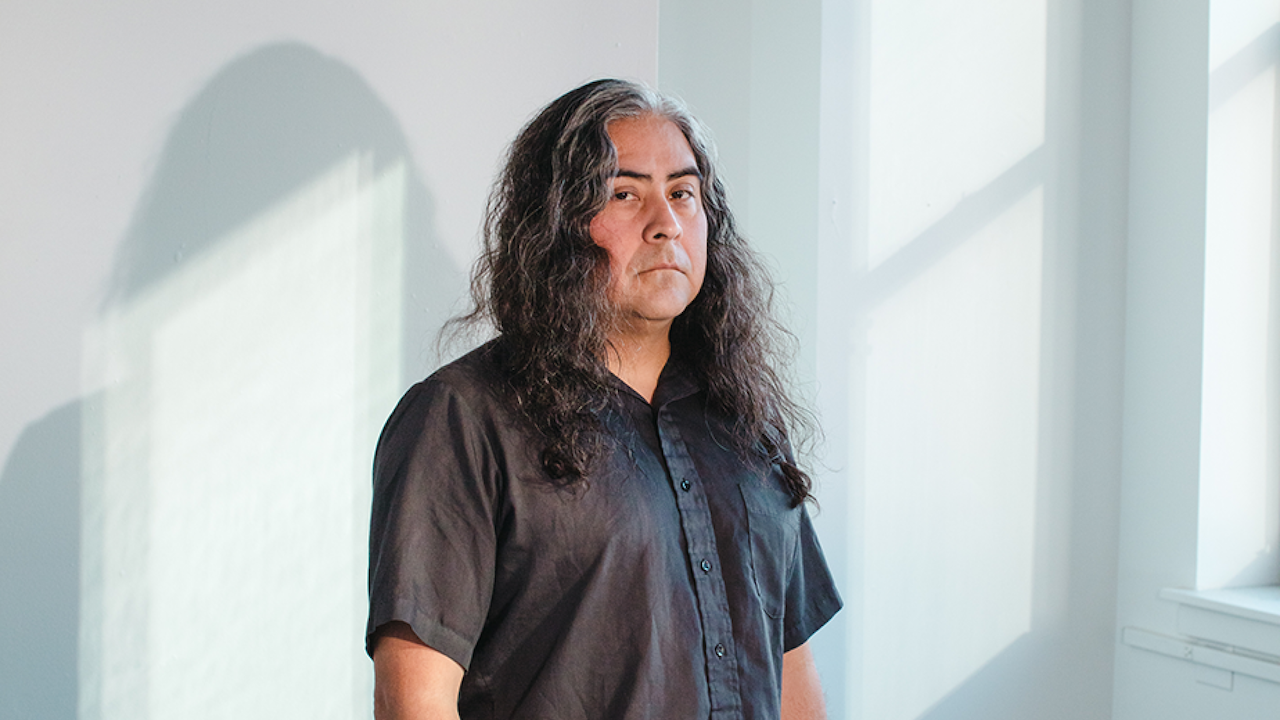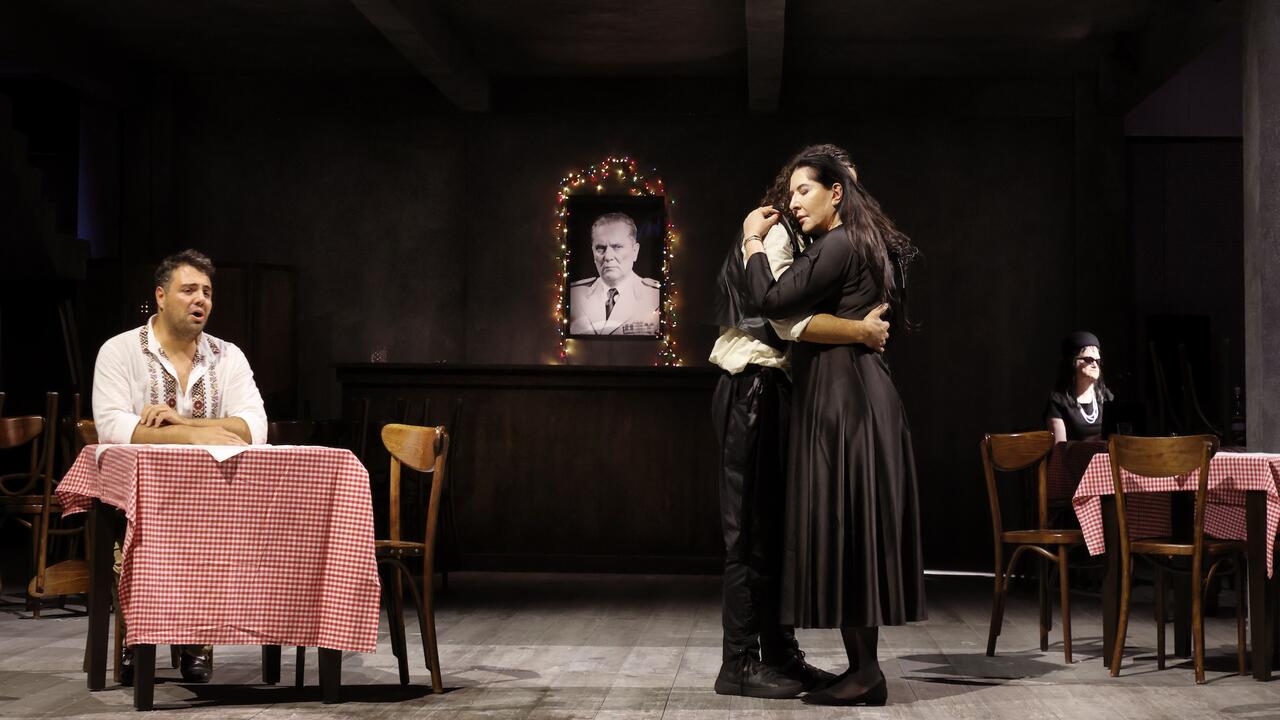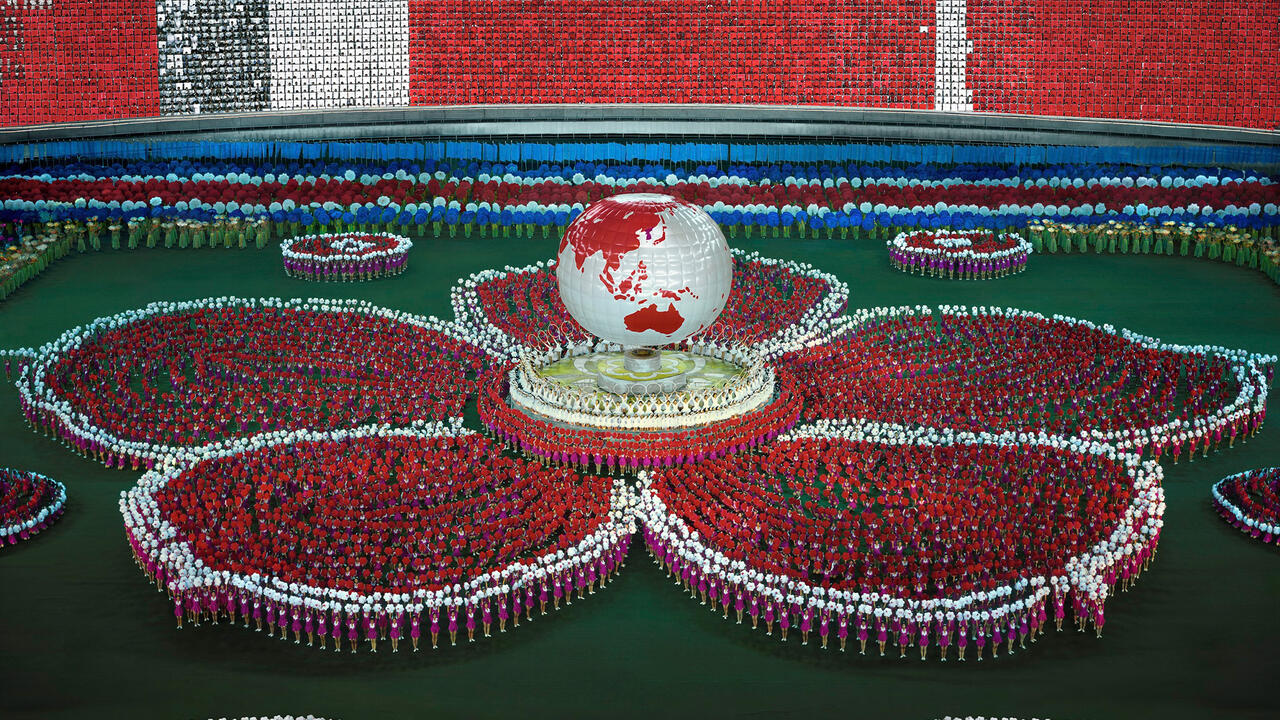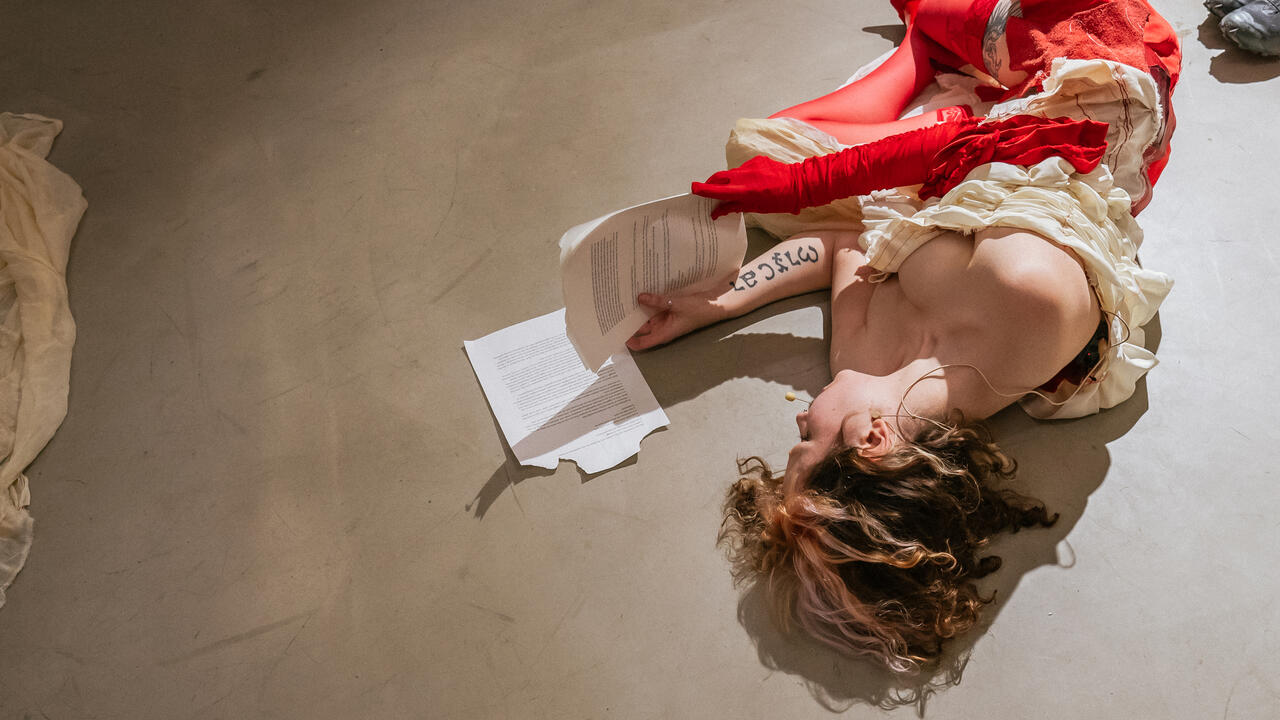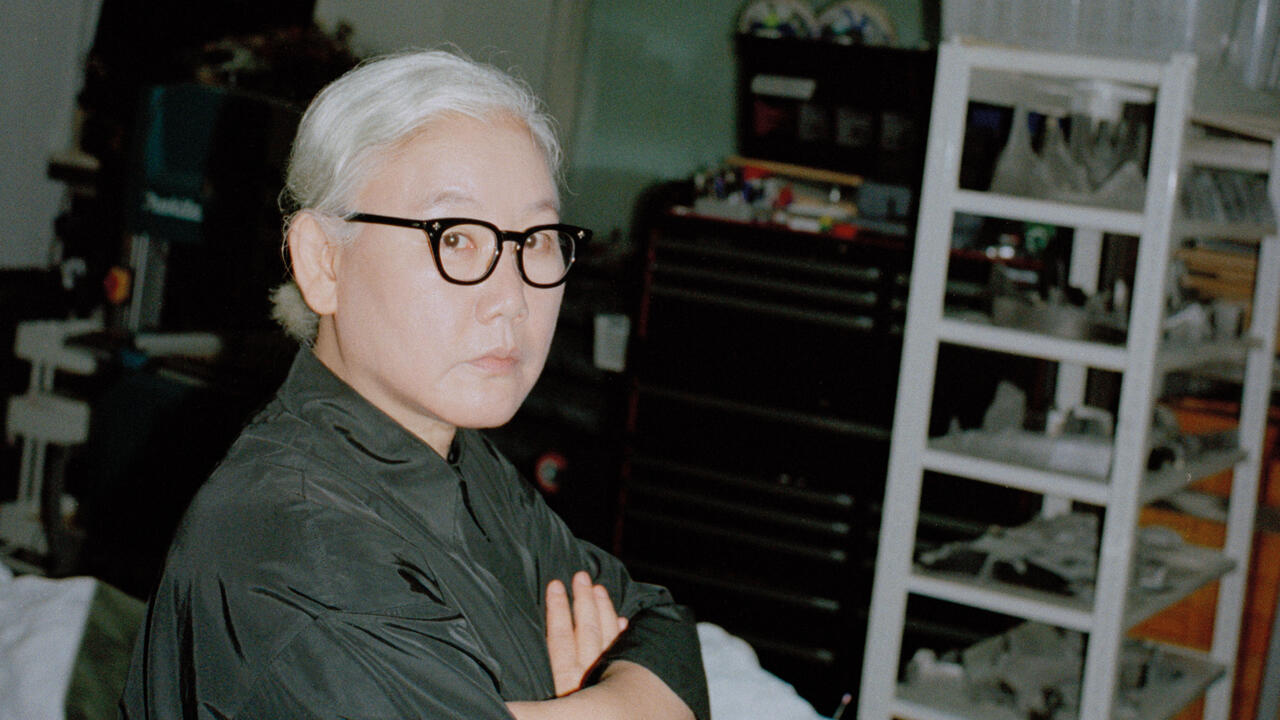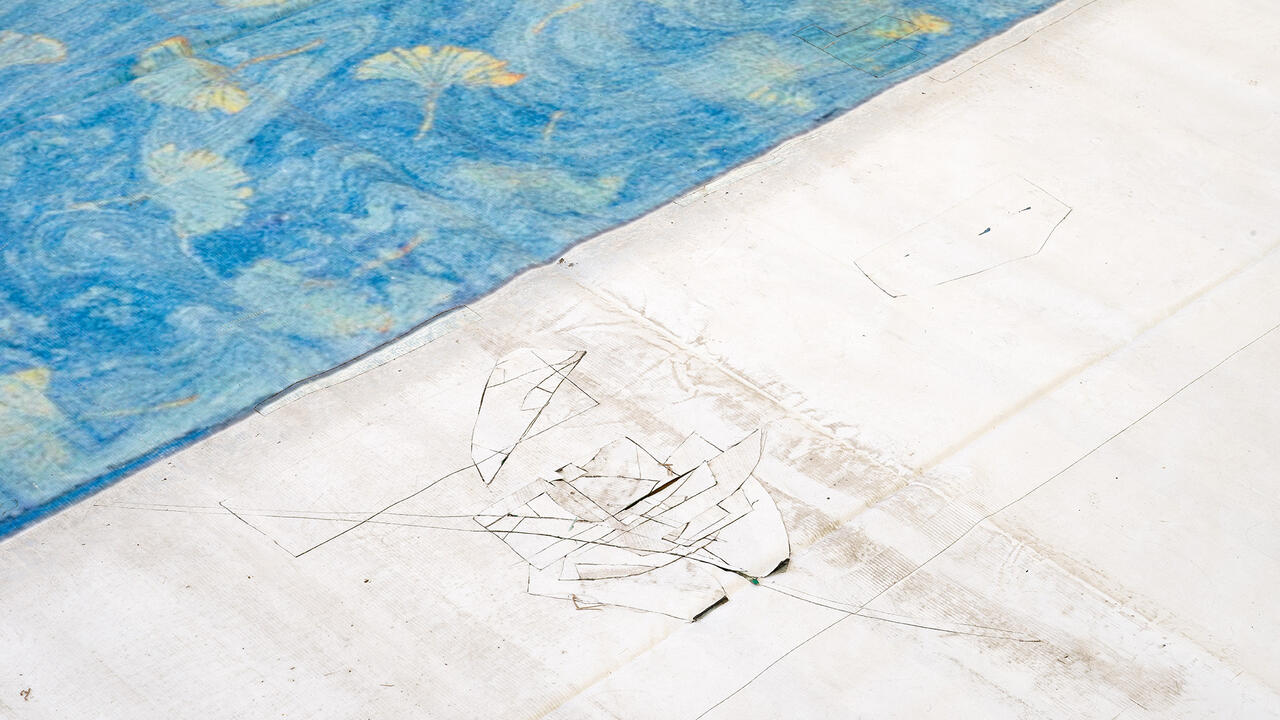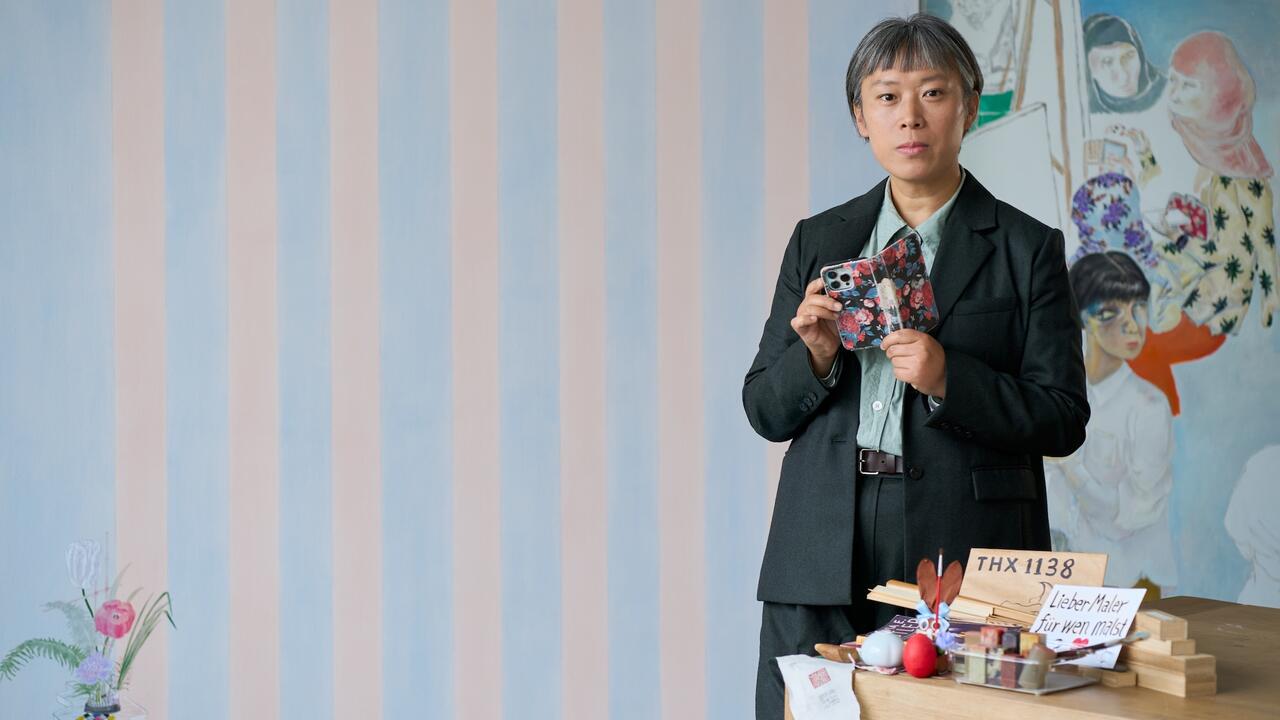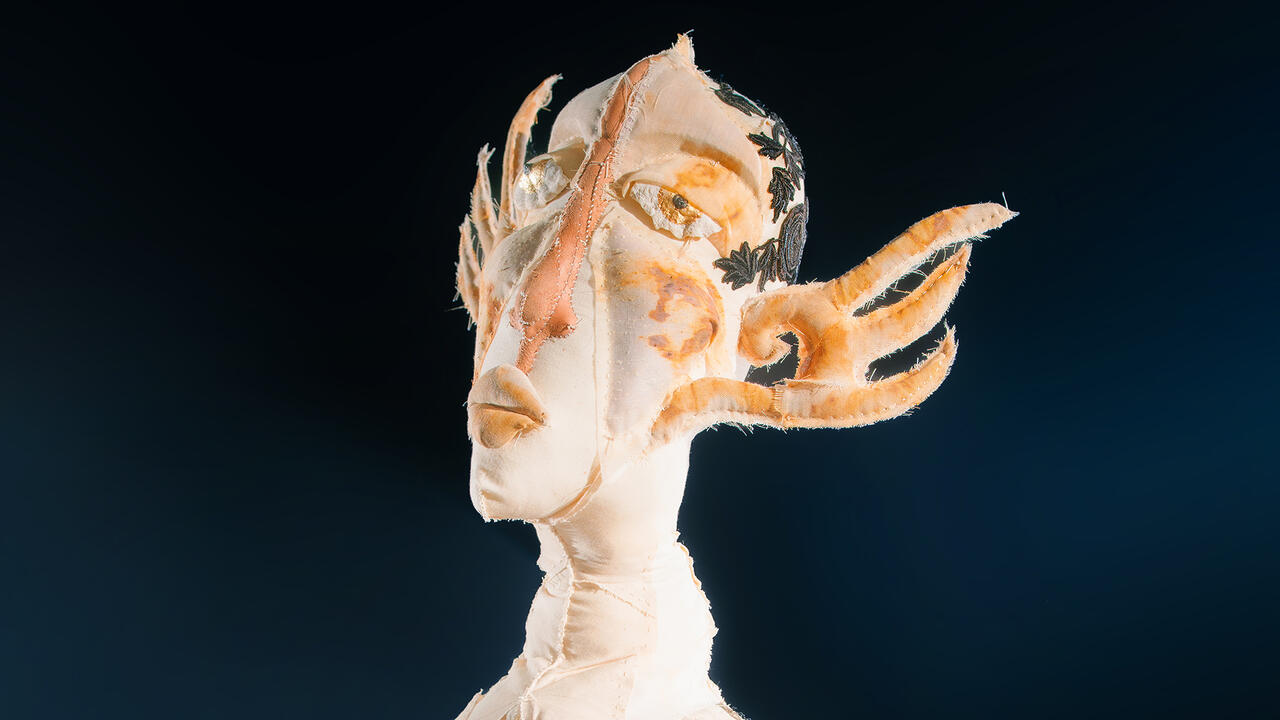Nora Turato’s Spoken-Word Screen Language
With a new performance work for Manifesta 12 in Palermo, the Amsterdam-based artist explores a state of continuous partial attention
With a new performance work for Manifesta 12 in Palermo, the Amsterdam-based artist explores a state of continuous partial attention

Cally Spooner’s 2017 poster series Notes on Humiliation features extracts from a year-long interview the artist conducted with psychiatrist Isabel Valli. Exploring the production and circulation of stress on a personal and societal level, Spooner opened their exchange with ideas put forward by philosopher Luciano Floridi and media theorist Franco ‘Bifo’ Berardi on the ‘infosphere’ produced by the digital media environment and the contemporary city. Spooner described her own physical and psychological response to the ‘deep infospheric crust’ she had sensed while living in London: forgetfulness, lower bone density, colds – and a state of continuous partial attention.
This last phenomenon is Nora Turato’s sphere of operation. Continuous partial attention fires the online textual hysteria on which the Zagreb-born, Amsterdam-based performance artist bases her spoken word performances. It is the spirit she embodies while delivering them.
By the end of our conversation in Palermo – where Turato is performing as part of Manifesta 12 – the artist has downed her fifth coffee of the day. She’s flying on caffeine. Epithets spray scattergun. Gestures spring forth, fully armed. Much as in her performance works, things are happening too fast to take in: all you can do is submit to her speedboat energy, skim along the surface in her wake. Turato moves at the pace of the infosphere – she harvests, processes and performs social preoccupations and the language they generate as they trend, peak and dip.

I’m Happy to Own My Implicit Biases is staged within the baroque Oratorio San Lorenzo. The altarpiece is a reproduction of the Nativity with St. Francis and St. Lawrence (1609), attributed to Caravaggio but stolen from the church, according to local rumour, by the mafia in the late 1960s. Every plane and gully of the white interior writhes with florid 17th-century stuccowork by Giacomo Serpotta. Within, Turato has installed screens and benches made from harsh metal mesh: the atmosphere is part holding cell, part locker room.
In May, an earlier work – Leaning Is the New Sitting – was performed on a meltingly humid London evening as part of Block Universe performance art festival. There, as in Palermo, Turato’s venue was heavy with association: the Old Operating Theatre in Borough, designed for the studious observation of amputations and other early surgery on female patients. Turato is not one to allow either a heatwave or centuries of backstory to pull focus.
In the Oratorio San Lorenzo she appears in an angular Balenciaga dress and aggressively studded high heels, singing in spiky a capella: ‘You don’t call back – I call again – you don’t call back – I call again – you just post it, basically, and hope for the best…’ She stalks through the space, grabbing sitting and standing room for herself on crowded benches, hanging from supporting poles, swooping round the corners.
For those of us immersed in the language of the tiny screen – online journals, blogs, social media, message boards, platitudes, comments sections, clickbait, motivational quotes – Turato’s text is all déjà vu, familiar but unplaceable. ‘Sentiment is ok, sentimentality is not,’ she announces. ‘Multiple partners? In this economy?… How often do you see your children?’
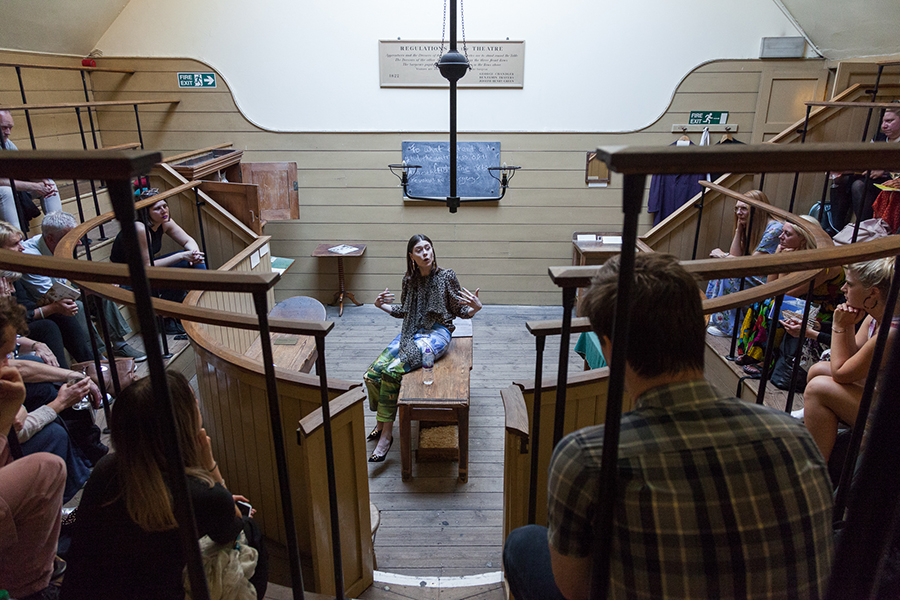
Turato’s singing voice bounces from chest to sinus: husky and persuasive, harsh and abrasive, at times scratchy, stuttering. In places she speaks, apparently confessional – ‘and of course I worry, because the things you worry about aren’t supposed to happen: that’s what worry does’ – but even here she’s only paying lip service. The veneer of authenticity, intimacy, is only that, no more. After half an hour Turato lowers her voice. ‘Thank you, that’s it,’ she says, and walks out of the space.
Performance, as an art form, came to her by happenstance. Turato has long been interested in music – singing and composing – but early encounters with deep misogyny in the industry soured things. With album covers and other music-related projects in mind, she turned instead to study graphic design – first at the Gerrit Rietveld Academie, Amsterdam, then Werkplaats Typografie, Arnhem, and, finally, a Rijksakademie residency. Her first text work was a vehicle for a typographic video in her BA degree show in 2013: the graphic designer Linda van Deursen, Turato’s graduation mentor, suggested she also perform it.
Turato’s first prominent engagement with the artworld came, aged 24, and still on her MA course, when she was invited to perform at an evening event staged by the Lithuanian pavilion at the Venice Biennale in 2015. She recalls her amazement as the outdoor courtyard of the party fell silent and a circle formed around her as she started performing. (The critic Adam Jasper, writing about the event a few years later, described a shocked atmosphere as Turato started up ‘as if a fight had broken out’.)
Looking beyond the energy of the performances themselves Turato’s work might also be described as collage or appropriation. In recent printed works – posters, wallpaper and silk scarves – she has favoured a graphic style that resembles the blocky alerts carried by cigarette packets. The texts that form the basis for both these and her spoken word performances are amalgamated as Turato reads: everything from e-books to the comments section of perfume review sites.

Structuring much of the text is the kind of ‘word salad’ James Bridle describes in his book New Dark Age (2018): searchable patterns of language generated by computers for computers, increasingly aped by human writers pushed to enhance their metrics. These are the formulaic headlines, chains of buzzwords, endless re-hashed ‘content’.
Language dates fast in these parts: last week’s meme already carries the stink of its own superannuation. Turato’s works have in-built obsolescence: on a long run, such as Manifesta, she foresees replacing parts of the text over time. (Following performances over the opening weekend, she will be performing twice daily between 7–14 September and 28 October – 4 November.) Already, a week in, she worries that a reference to ‘dragon energy’ – a quality Kanye West suggested he shared with Donald Trump – is not sufficiently of the moment. It jars, like a flat key, against the harmony of the present. By the end of its run in Palermo, I’m Happy to Own My Implicit Biases, will likely be so re-patched that it will barely resemble its own, younger, self.
As she retires each text piece, Turato records them as a typographic video, single words flashing up at the speed of her delivery. Like the performances, and the infosphere they draw on, there is no way to obtain a total overview: all you can know is what you see or hear in the moment.
Main image: Nora Turato, Im Happy to Own My Implicit Biases, 2018, performed at Oratorio San Lorenzo, Palermo, as part of Manifesta 12. Courtesy: the artist: photograph: Francesco Bellina









